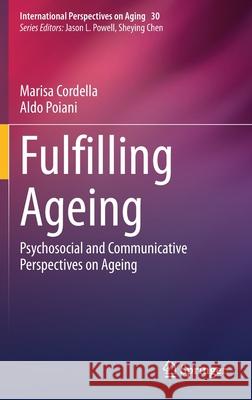Fulfilling Ageing: Psychosocial and Communicative Perspectives on Ageing » książka
topmenu
Fulfilling Ageing: Psychosocial and Communicative Perspectives on Ageing
ISBN-13: 9783030600693 / Angielski / Twarda / 2021 / 990 str.
Kategorie:
Kategorie BISAC:
Wydawca:
Springer
Seria wydawnicza:
Język:
Angielski
ISBN-13:
9783030600693
Rok wydania:
2021
Wydanie:
2021
Numer serii:
000421158
Ilość stron:
990
Waga:
1.57 kg
Wymiary:
23.39 x 15.6 x 5.23
Oprawa:
Twarda
Wolumenów:
01
Dodatkowe informacje:
Wydanie ilustrowane











